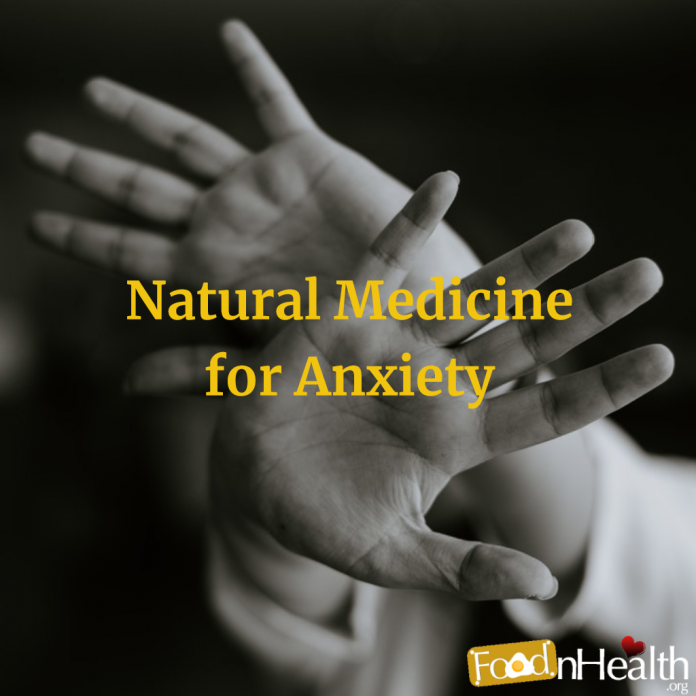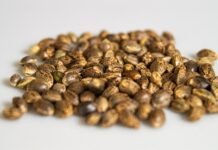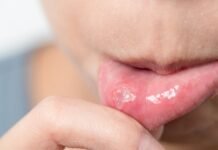Anxiety may feel like an isolating condition but in fact, according to the National Alliance on Mental Illness, it’s a terribly common one: 18.1 percent of adults currently suffer from some form of anxiety. Additionally, nearly one-third of American adults will deal with an anxiety disorder at some time in their lives. When you think of the everyday stressors that everyone confronts on a regular basis, it adds up to a whole lot of people feeling anxious a lot of the time.
With so many of us facing anxiety, many people look to medication for relief. While prescription drugs can be an effective treatment for some people, others prefer herbal supplements for anxiety. Natural medicine for anxiety may include both herbs and vitamins. Vitamins are naturally found in food but are also available as supplements if you don’t get enough of a certain vitamin from your diet. For example, vegetarians and vegans often have trouble getting enough B12 from food sources.
Choosing the Right Herbal Supplements for Anxiety
A wide variety of natural supplements for anxiety are available. You can choose just one of the herbs or vitamins listed in this article or seek out supplements that contain several. If you are considering natural supplements, be sure to consult a health-care practitioner to discuss which options are appropriate for you.
L-theanine for Anxiety Relief
Several studies have shown that L-theanine, which is derived from green tea leaves, may help promote relaxation. It appears to increase alpha brain waves, which may support a calming state of mind. A 2012 pilot study showed that L-theanine lowered blood pressure and tension-related anxiety scores better than a placebo, improving the responses of healthy people to a stressful situation. In 2011, a pilot study with healthy young people prone to anxiety showed that L-theanine improved their reaction times, elevated their visual attention performance, decreased their heart rates, and increased their alpha brain waves.
L-theanine is generally thought to be safe for short-term use for everybody except those who take blood pressure medication or stimulant drugs, since it can lower blood pressure to dangerously low levels and counteract the effects of stimulants.
How Valerian Root for Anxiety Can Help
Valerian root has historically been used to help reduce anxiety and insomnia, as well as headaches, stress, and trembling. Studies have supported valerian root’s use for sleep, although fewer studies conclusively verify its effectiveness for anxiety. If you find it to be an effective treatment for you, the good news is that the U.S. Food and Drug Administration generally regards valerian root as safe.
Is Magnesium for Anxiety Effective?
Magnesium is an important mineral for various bodily functions, one of which is that it may play a role in making you feel calm. A 2017 review of 14 previously published reports showed mixed results across the studies that were evaluated, with some showing magnesium’s positive effect on anxiety and others showing no effect.
Taking Passionflower for Anxiety
There are approximately 500 different species of passionflower in the Passiflora family. One species, Passiflora incarnata, may help relieve anxiety and insomnia. It has been used for generations for the relief of mild stress and to aid with sleep. Some studies have shown that taking passionflower may reduce symptoms of anxiety, including before surgery. Passionflower is generally considered to be safe, although it shouldn’t be taken by pregnant women since it can induce contractions.
Lemon Balm and Anxiety Treatment
Lemon balm, a member of the mint family, is thought to help reduce the symptoms of anxiety because it contains substances that seem to have a sedating effect. Research on lemon balm is just starting, but there are a few early studies that suggest its potential. One study published in 2014 showed that lemon balm extract consumed in a drink or in yogurt helped improve mood and cognitive performance. In a pilot study published in 2010, participants experienced reduced symptoms of anxiety and insomnia from lemon balm extract.
Lemon balm is generally regarded as safe for short-term use, though it is especially important to speak with a health-care practitioner before using lemon balm if you have thyroid disease.
Hops and Anxiety Supplements That Can Help
Many people know the hops plant for its use in making beer. However, the flower of the hops plant has been commonly used for anxiety and sleep disorders. In a 2017 pilot study, investors found that hops supplementation may improve symptoms of anxiety, mild depression, and stress.
5-HTP and Anxiety, Depression, and Insomnia
A byproduct of L-tryptophan (of post-Thanksgiving turkey fame), 5-hydroxytryptophan, or 5-HTP for short, works in the central nervous system by increasing the production of serotonin. This neurotransmitter is believed to play an important role in the body. The research is very early and not proven, but 5-HTP supplementation has been used for anxiety, depression, and insomnia.
Chamomile Flower and Anxiety Traditional Medicines
Chamomile is popular throughout the world and has been widely used for centuries to promote relaxation and support sleep. It is also believed to be possibly effective for reducing anxiety. Chamomile is consumed in foods, beverages such as teas, and supplements.
Finding a Single Supplement With Natural Ingredients for Anxiety Relief
Experts often recommend using one natural source at a time so that you can discern what has an effect. If this approach is not producing the results you want, taking a supplement that incorporates many of these natural herbs and vitamins for anxiety may be a better method for you. You may try Recharge Health blissful sleep, which contains magnesium, L-theanine, passionflower extract, valerian root extract, and lemon balm extract, along with vitamin B6, hops extract, chamomile flower extract, and 5-HTP. With better sleep, you may see relief of your symptoms of anxiety. Before you begin taking any supplement, consult with your healthcare provider to be sure it’s safe for you.


























